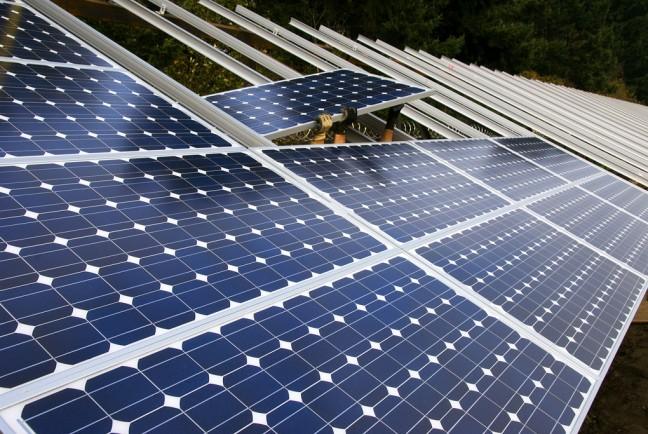2015 was Wisconsin’s biggest year for solar power, but experts say more advances must be made to boost the state’s mediocre ranking for growth.
In a report released by the Solar Energy Industries Association Monday, Wisconsin ranked 33rd in the nation for solar energy growth. In another report compiled by The Solar Foundation, Wisconsin ranked 26th nationally for the number of solar jobs in the state and 27th nationally for solar jobs per capita.
Tyler Huebner, executive director for RENEW Wisconsin, a renewable energy advocacy group, said Wisconsin needs to make improvements in three areas: maintaining funding for organizations that support consumers, creation of lending programs for consumers and support for net metering policies.
“We’re in the middle of the pack, but the rest of the pack is moving, so we need to keep moving if we’re going to even stay in the middle,” Huebner said. “There’s a bunch of opportunities for us to really open the doors on this solar market in Wisconsin, but we do need better state policy to do that.”
In the Solar Foundation report, Wisconsin received a “D” for net metering policies, those which allow solar power users to get credited for surplus solar power, Huebner said. Excess power generated by solar panels is transferred down the power line and used by neighbors. Huebner said users should get compensation for this power.
The low price of oil and gas also contributes to lack of support for solar power, Robert Hamers, UW chemistry professor and expert on solar energy conservation, said. If Wisconsin introduced a carbon tax or tax breaks for solar energy, using solar power could become more attractive, Hamers said.
Focus On Energy, an organization that helps solar power users by providing rebates and information, is currently facing a $7 million cut from a bill that passed through the Assembly Feb. 18.
Solar power lending programs can help consumers by offering leasing and refinancing options, Huebner said.
Huebner also said Wisconsin companies should start allowing solar power leasing. A major deterrent from going solar is the up-front installation cost, Huebner said. With leasing options, these initial costs would be cut down.
“That has been shown in other states to really accelerate the solar market and really level the playing field so that people of all income levels can access solar because this barrier of … the upfront cost is taken away if you can lease it,” Huebner said.
Hamers said an additional reason for Wisconsin’s mediocre rating is that the state is located in the north of the U.S., where the sun’s angle prevents solar power efficiency.
Some organizations have taken measures to increase solar power in Wisconsin. Dairyland Power and Xcel Energy announced major increases in solar energy Wednesday.
Huebner said in a statement that these efforts have the potential to more than double Wisconsin’s solar energy production in 2016, which could help boost Wisconsin’s rating.
“Dairyland’s announcement ensures that 2016 will surpass [2015’s solar power increases] and become Wisconsin’s biggest year ever for solar,” Huebner said.













